What’s Local SEO? Implementation Basics For Small Business Owners
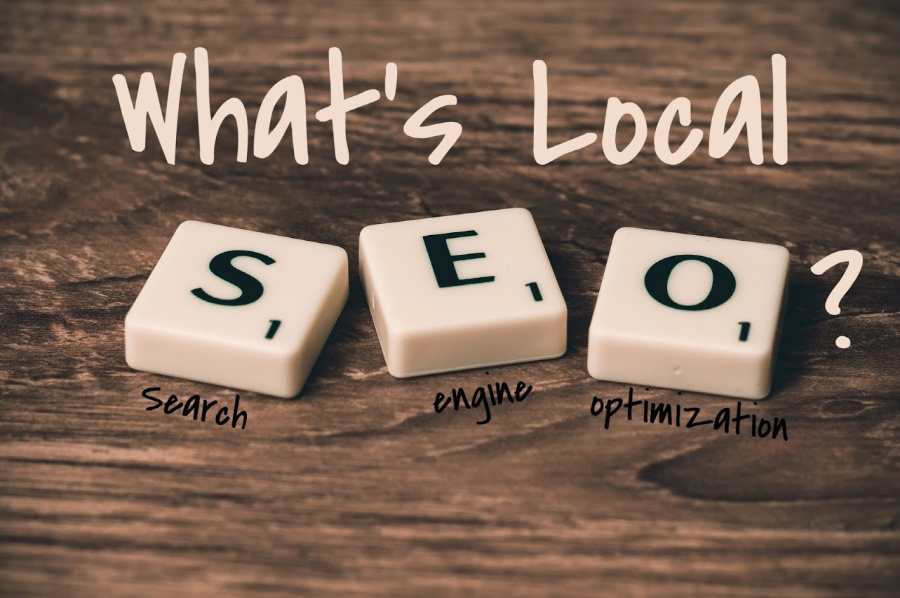
If you’re a small-business owner asking yourself, “What’s local SEO?” chances are you want to grow your business and you’ve embraced the fact that the internet is the most likely place your customers will look for you. That’s because we all want quick answers and information when we want it – even when your business is closed.
Here you'll find the basics of local SEO and a starting point for you to create and implement your local SEO strategy. I've broken the content into four sections so you can easily find the information you're looking for.
Section 1: What’s Local SEO?
Section 2: Do You Need Local SEO?
Section 3: Local SEO Basics For DIYers
-
Google My Busines And Bing Places For Business
-
Structured Citations
-
Unstructured Citations (Quality Backlinks)
-
Online Reviews
-
Overall Website Optimization
Conclusion

Photo by Eugene Chystiakov from Pexels
Section 1: What’s Local SEO?
Local SEO (Search Engine Optimization) is marketing your local business or service online to people in the vicinity of your business who are searching for the goods or services you offer.
Local SEO isn’t about buying ads. However, it is about making sure the content on your website targets the area(s) you service, that you have Google My Business and Bing Places For Business configured correctly, that you have structured and unstructured citations, that you manage online reviews and get relevant, quality backlinks from other local websites, and that your website is optimized for the product or service you offer.
(You’ll find more information about each of these in Section 3: Local SEO Basics For DIYers.) (link to Section 3)
When a site is successfully optimized for local search, it can show up in the local search engine results page (SERP) local pack (also known as a 3-pack on Google).
What’s a local pack? Check out the image below. It’s the 3-pack for “massage therapists mansfield.”
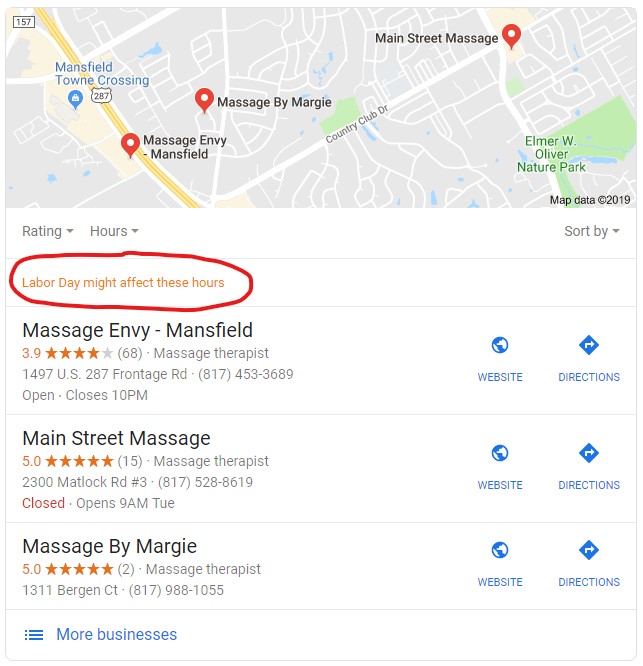
What’s great about showing up in the 3-pack is that your address, phone number, hours of business for the day of the search, directions and your website are all displayed. Google will also alert searchers when hours of operation may be different. I ran this query on Labor Day and you can see that Google lets me know that the hours might be different than listed because of the holiday.
The SERP isn’t just the local pack. It includes regular listings too. That means you can show up in the local pack and the list of search results – just like Massage Envy does. (See the image below.)
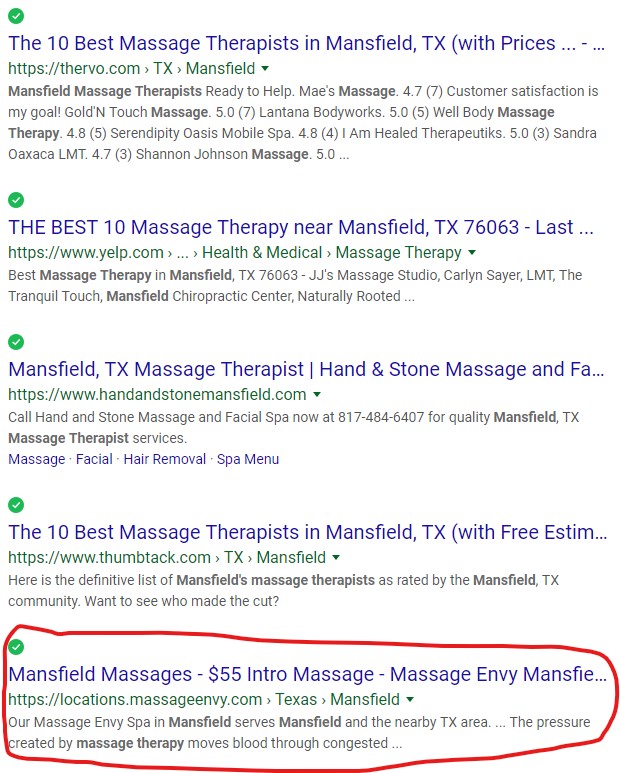
So, when you understand what local SEO is, you, your team or a knowledgeable contractor can put together a strategy and then optimize your website to show up in multiple places on a single local SERP.
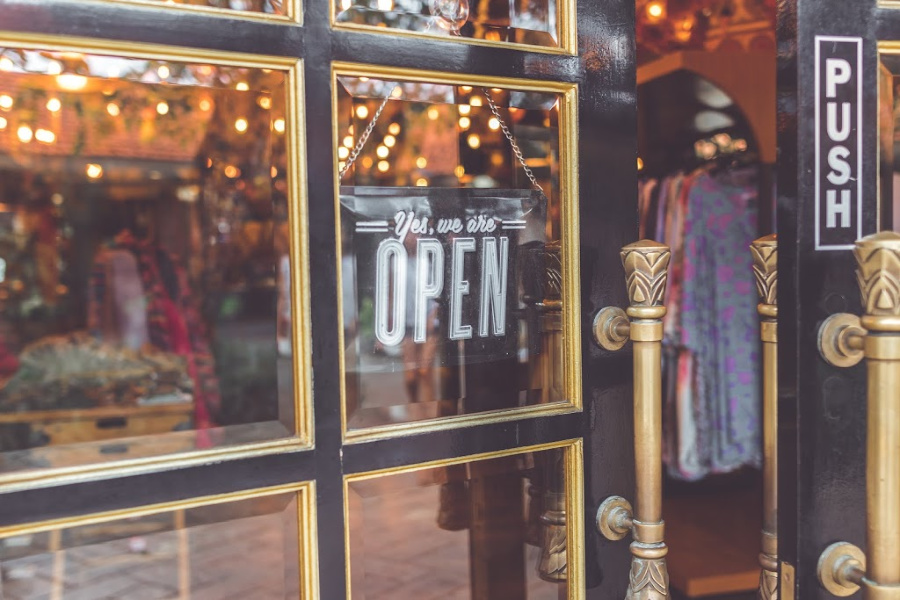
Photo by Artem Beliaikin from Pexels
Section 2: Do You Need Local SEO?
In October 2018 at the Secrets of Local Search Conference, a Google rep presented data that showed 46% of searches have a local intent. That means that when people Google, they’re looking for goods or service providers near them.
It’s safe to assume that since that time, the number of local searches has at least stayed the same – if not increased – as we all become more dependent on our smartphones to help us navigate our daily lives.
So if your business depends on local customers for revenue, you need to optimize your website for local search. That way when people search for your products or services, you’ll have a shot at getting their business because your website shows up on the local search engine results page.

Photo by rawpixel.com from Pexels
Section 3: Local SEO Basics For DIYers
If you’re a DIYer and want to drive local traffic to your website, it’s critical that you have a good understanding of what local SEO is. The content here is meant to get you started. You will need to tailor the information presented here and go deeper into the different topics to optimize your website for your particular products and/or services. And that, unfortunately, is beyond the scope of this blog post.
So, with that in mind, let’s get started with the basics of local SEO.
Google My Business and Bing Places for Business
Both Google and Bing offer free business listings and your business needs to claim the listings. On Google, it’s called Google My Business (GMB). On Bing, it’s called Bing Places for Business.
Google pulls the information for the 3-pack from Google My Business listings. So, your website can’t be in the 3-pack unless you have your GMB listing fully configured.
Similarly, Bing pulls the information for the local pack from Bing Places for Business. Below is the Bing local pack for “massage therapists mansfield.”
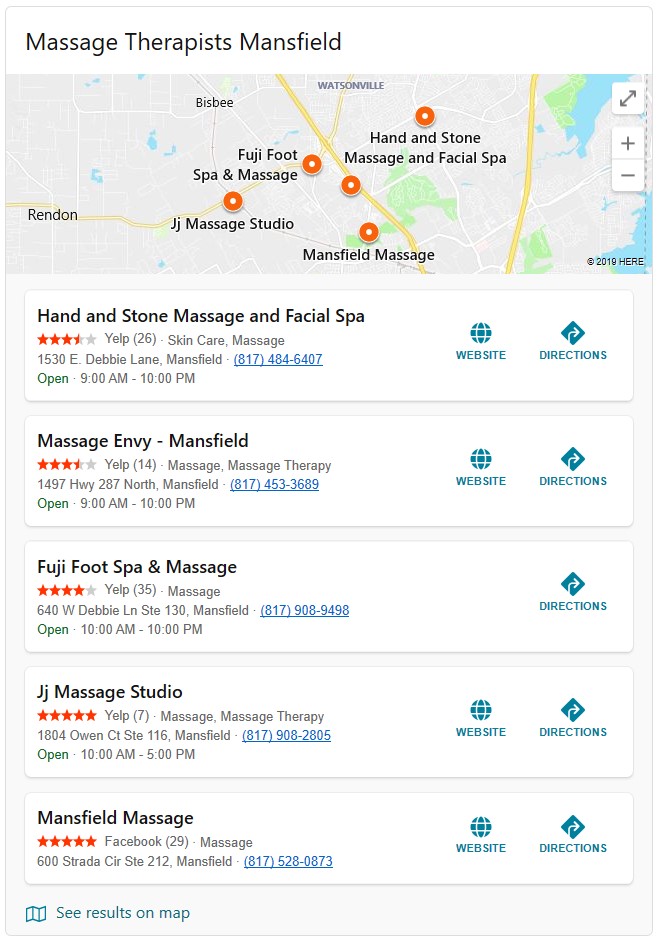
You may wonder why you should worry about being on bing Places for Business when Google has 94.92% of worldwide search and bing has only 1.08% (as of April 2019). Because it’s another listing you can claim for your business, it’s the default search engine on all computers that use Microsoft, it incorporates reviews from social media and Yelp and it’s a structured citation. (Yes, GMB is also a structured citation.)
Structured citations
A structured citation is any website that keeps your local business’ name, address, phone number and website URL for reference. I’ve already mentioned GMB and Bing Places for Business. But there are others.
According to MOZ, the “core set of quality platforms on which nearly any type of local business can get listed” in the US include:
- Acxiom
- Apple Maps
- Bing
- Citygrid
- Factual
- Foursquare
- Infogroup/ExpressUpdate
- Localeze
- Superpages
- Yahoo!
- YP
- Yelp
Some of these platforms offer free listings and others require a fee.
But these aren’t the only places you can get structured listings. You can also get them from your local chamber of commerce, local business associations, community hubs, and profession listings on websites like HomeAdvisor, HealthGrades, TripAdvisor, PsychologyToday and LegalMatch.
Unstructured citations or quality backlinks
A quality backlink or un unstructured citation is any mention of your business on a website or app that isn’t a directory or specifically meant to provide local business listings. Examples of places where your business might gain an unstructured citation or quality backlink include:
- Local newspaper
- Social media
- A blog post on another site
- Media/news sites
Online reviews
Online reviews are a very important piece of local SEO. They not only help potential clients/customers learn about the quality of your services/products; they also help search engines know that your website/services/products are useful and well-regarded.
You can receive online reviews on your website, through social media, directory services like Yelp, GMB and all kinds of other sites. HubSpot has put together a list of 25 product review websites for both B2B and B2C companies and even they say their list is just a starting point.
We all hope that all our customers/clients leave glowing reviews of our products or services on multiple platforms. But that’s just not going to happen.
What will happen is that you’ll sporadically get reviews when you request them. You’ll also receive reviews when a client/customer is unhappy.
Regardless of the content of the reviews your company receives, it’s important to address each one and, if possible, include the location in your response. For example, if you receive a review from a client about your Mansfield location, you could respond to their review with something like, “Glad you had a great experience at our Mansfield location!”
Overall website optimization
When it’s done well, local SEO is actually a layer of optimization on top of on-page (optimizing individual pages on your website) and technical SEO (optimizing your website for crawling and indexing by search engines). They work together to let the search engines know what your business sells, how knowledgeable your company is about the issues your clients/customers face, where you do business and how your customers/clients think of your products/services.
Yes, you can do local SEO on your website without worrying about either on-page or technical SEO. However, doing so leaves a lot on the table and will actually hamper your efforts to rank well in local search.
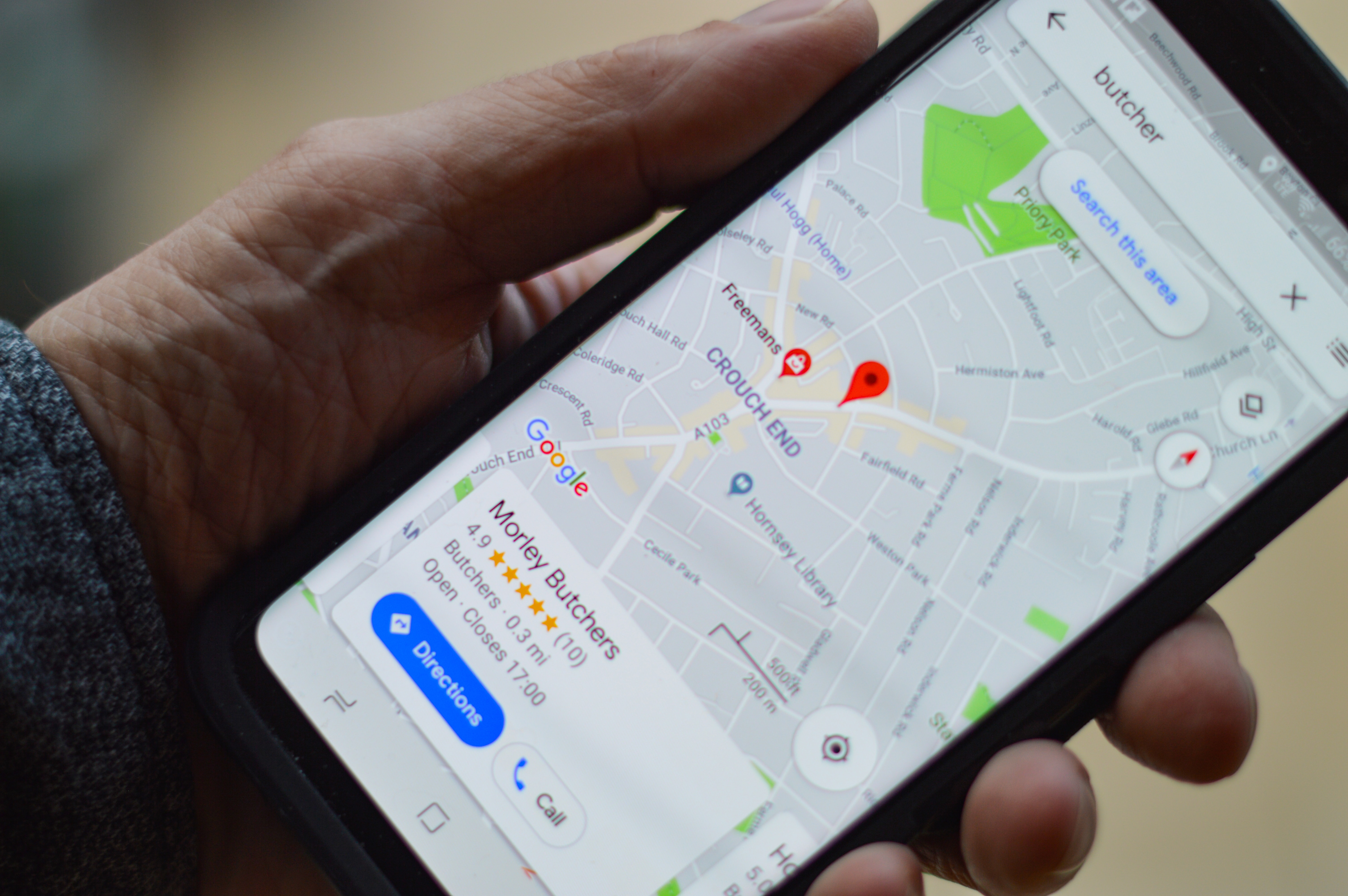
Photo by henry perks on Unsplash
Conclusion
There’s a lot of information in this article. However, don't let that dissuade you. Developing the strategy and optimizing your website for local SEO is very do-able. And if you don’t feel like you can do it all on your own right now, that’s OK. There are plenty of tools, apps, information, and SEO consultants to help you either gain the expertise or do it for you.
If your company’s mission includes doing business with people and/or other businesses in your area, having a strategy for local SEO is critical. When you optimize your website for local search, you’ll be taking the right steps to naturally get your company’s info in front of your customers right when they want it.
